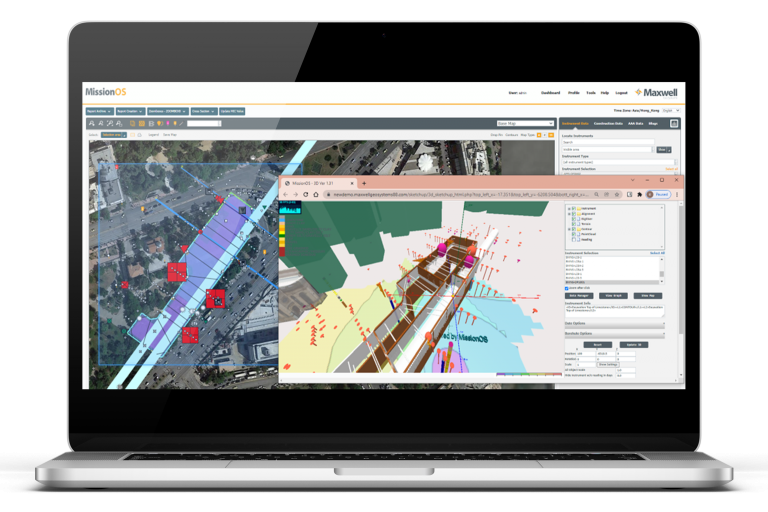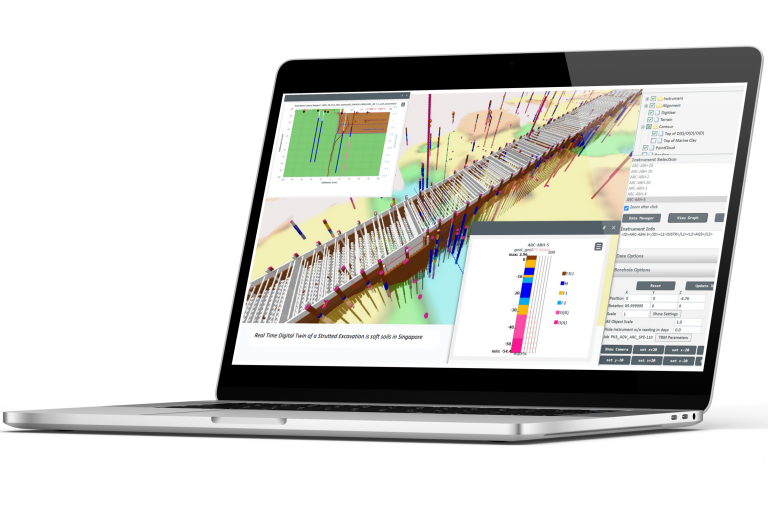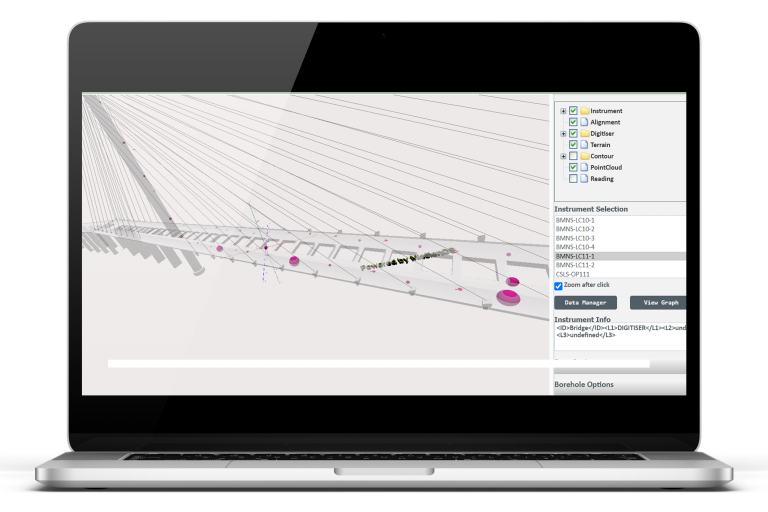The BIM Impact | Global

Building Information Modelling, or BIM, has had a profound and transformative impact on the construction technology (ConTech) industry. It has revolutionised the way in which construction projects are planned, designed, constructed and managed. Here, we’ll discuss some of the key impacts of BIM in the ConTech industry, as well as explaining how integrating Maxwell GeoSystems’ MissionOS complements BIM.
1. Risk Reduction: The adoption of BIM technology into projects reduces the risk of errors during construction by identifying clashes, conflicts and issues in the design phase. As a result of this, there are fewer project delays and cost overruns, benefitting all project stakeholders across the project lifecycle. By extension, the visualisation of the project models within the context of hazards, ground conditions and impacted surrounding helps to identify project risks and help plan mitigations and controls.
MissionOS is BIM enabled, and absorbs the project model as IFC into a context rich GIS and 4D production environment helping contractors and designers to implement effective process controls.

2. Increased Efficiency: BIM enables the automation of highly repetitive tasks and processes, including construction documentations and quantity take-offs and improving overall efficiency and reducing the potential for human errors.
MissionOS when combined with BIM provides the leading system of record for ground related construction projects, with a unique ability to combine manual and machine records with reality capture of built geometry. Coupled with real-time data monitoring and analysis tools, MissionOS helps project stakeholders track the performance of geotechnical elements and other construction components, ensuring that they align with the BIM objectives.
3. Efficient Project Management: BIM serves as a centralised platform for sharing of data, project documentation and coordination. Through this, it streamlines project management by improving various activities, such as task coordination, reducing project delays and improving/enhancing project timelines. BIM allows project managers to gather real-time data for data-driven decision-making and to keep the project on-track.
MissionOS implements GIS enabled digital twins, and with our built in API connectivity, the MissionOS system provides an easily accessible central resource for data on the project. Using embedded blogging technology in Mission allows our users to communicate efficiently when events occur. Teams are kept fully informed and consulted and events closed out efficiently with complete auditable records.

4. Improved Collaboration: BIM facilitates collaboration among all project stakeholders in construction, right from architects to engineers to owners. It promotes effective communication and information sharing resulting in fewer conflicts and misunderstanding across the project lifecycle amongst project stakeholders.
MissionOS has a very high rate of engagement on construction projects with a large number of staff touching the systems every day. As the place where the works are presented in full spatial and geotechnical context, MissionOS provides a more comprehensive view of the project, allowing for better decision-making and collaboration. The MissionOS platform helps to break down traditional working siloed practices, through its blogs and reporting functionality.

Whilst Maxwell GeoSystems’ MissionOS doesn’t provide BIM authoring directly, our offerings are highly complementary to CAD based BIM in construction.
BIM has certainly revolutionised the construction technology industry through it improving collaboration, visualisation, project management, and more. This has become a foundational technology that drives innovation and efficiency, making construction processes more streamlined, cost-effective and sustainable.
To learn more about Maxwell GeoSystems’ MissionOS, and how it can help in your projects, visit www.maxwellgeosystems.com.
No tags found for this post.





